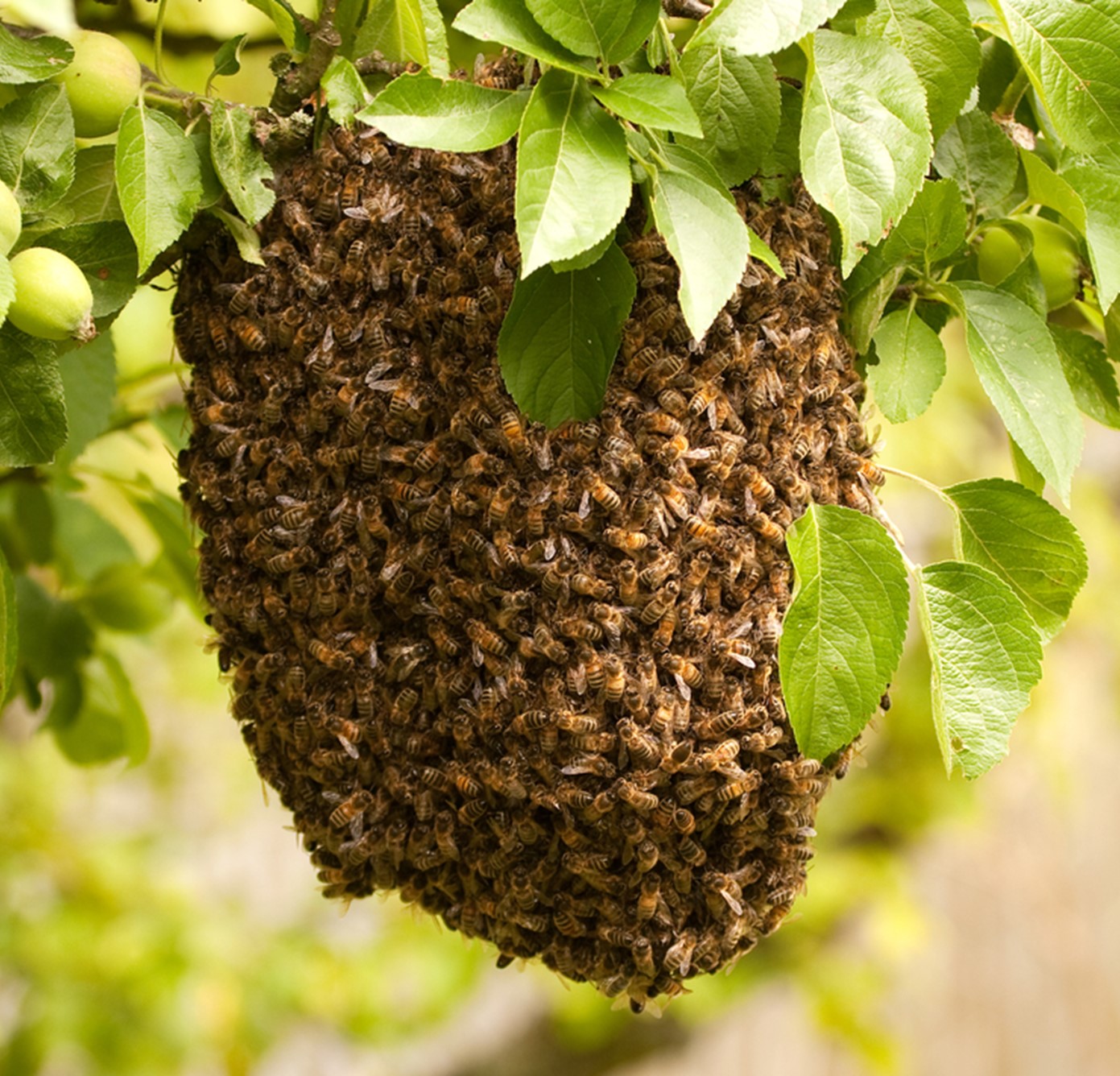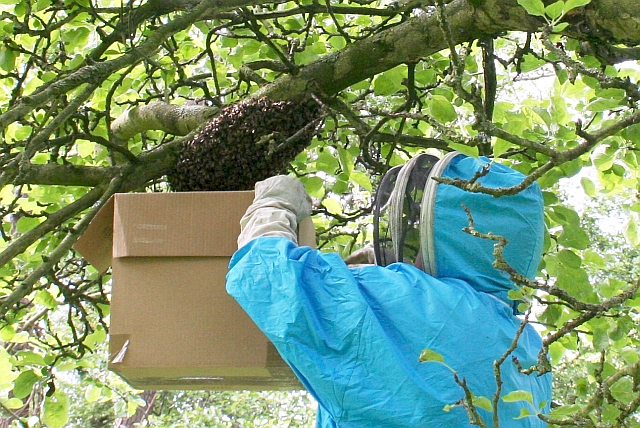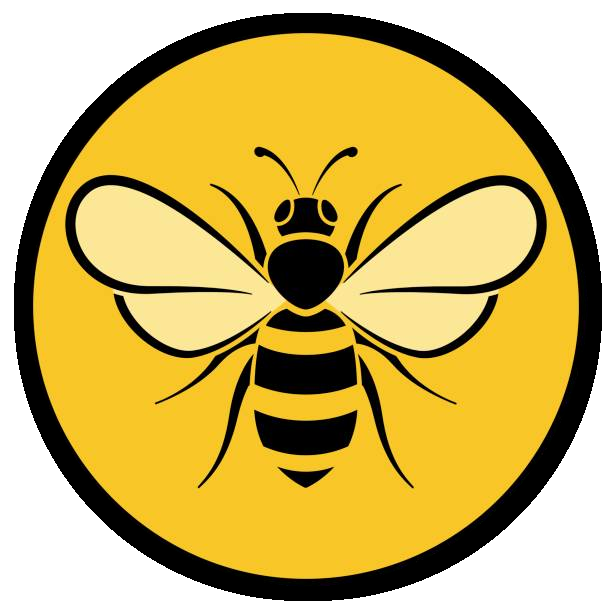Swarming is the natural method by which honeybees propagate. In essence, as the colony increases in size during the spring and early summer a new queen bee emerges and the original queen together with around half of the worker bees leave the hive to form a new colony. Initially the bees swirl about in the air, the combined sight and sound of which can be quite alarming to the casual observer. Despite this, the bees are probably their most benign when swarming and it is best to simply leave them to it, go inside and close any doors and windows. Eventually the bees will form a cluster, hopefully in an accessible position in a tree or hedge where they might remain for several hours. This provides an ideal opportunity for a local beekeeper to collect them and re-house the bees in an empty hive in their own apiary.


Having spent time and effort nurturing their bees, most beekeepers do not want to lose them and consequently employ various methods to prevent their bees from swarming. However, even the most experienced beekeepers have lost bees through swarming, and it is therefore necessary to have a group of beekeepers who can be contacted by the public to deal with swarms.
Although most experienced beekeepers are willing to deal with swarms, we have nominated specific members who should be contacted by anyone with a swarm of bees on their property. These members are on the list of BBKA and CBKA approved swarm collectors and can be trusted to adhere to the CBKA rules governing swarm collection (please see below), one of which is that they should not collect swarms for commercial gain although they can request reimbursement of any expenses incurred. Our nominated swarm collectors are also covered by BBKA Insurance when performing this operation.
MCBK Approved Swarm Collectors
| Simon Raeburn Winsford 07525 828656 | Karl Colyer Northwich 07968 623131 | Steve Purkis Sandiway 07740 100106 | Dave Wright Oscroft 07831 595119 | Chris Cornwell-Lee Tarporley 07584 035360 |
